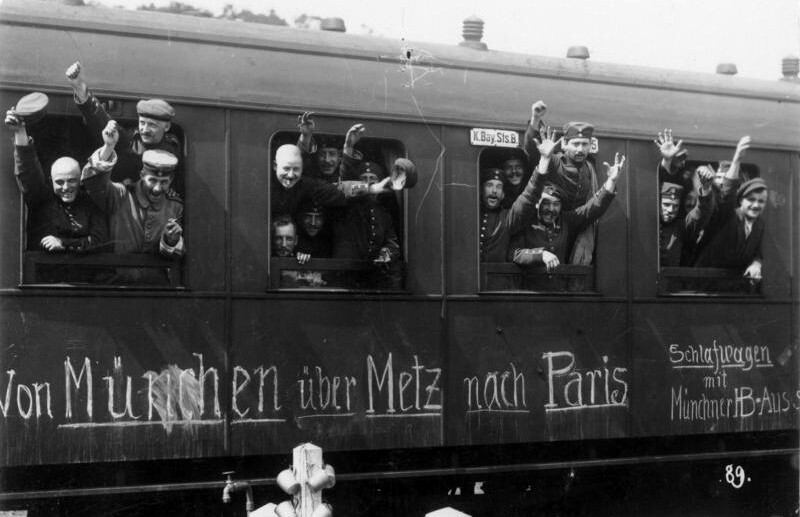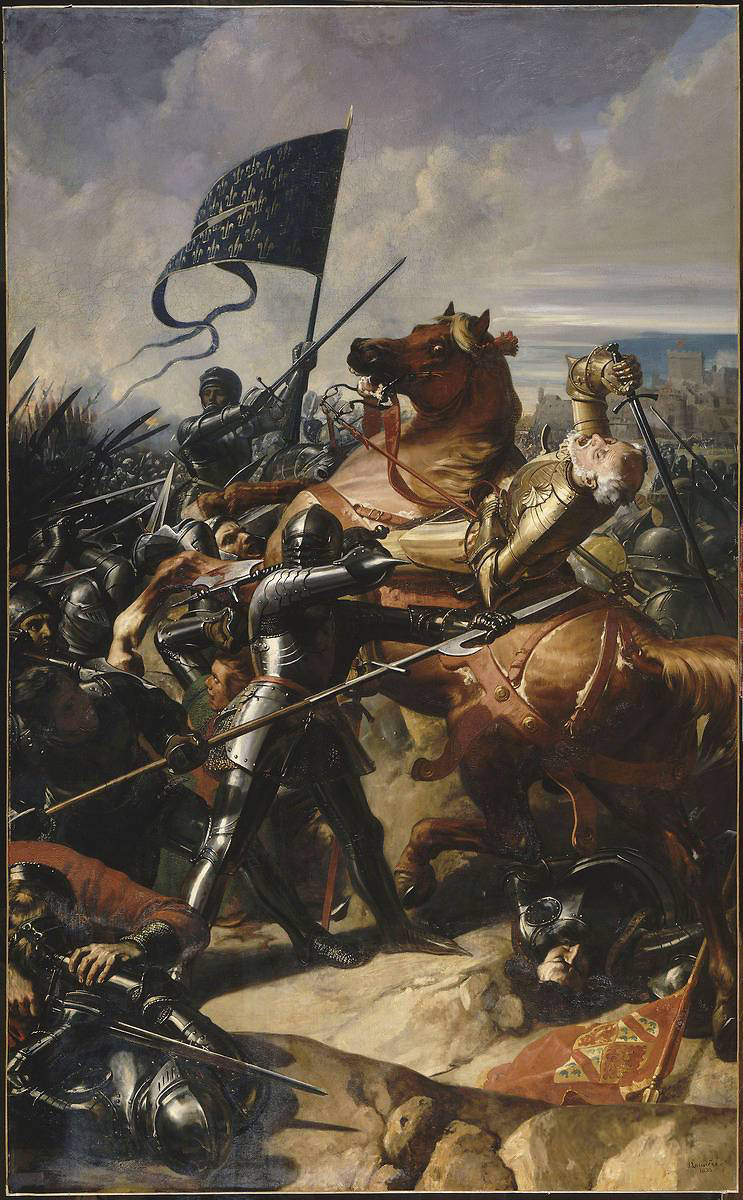|
Le Pays De France
''Le Pays de France'', subtitled ''Organe des états généraux du tourisme'' (''The Country of France - Organ of the Estates General for Tourism''), was a French newspaper of the First World War. It originated in a monthly paper edited by '' Le Matin'' and was intended for promotion of tourism. As a monthly it only lasted for 3 issues, with the first on 10 May 1914 and the last in July 1914. It then became a weekly paper two months after the outbreak of war, on 12 November 1914, ceasing publication in 1919, with its final issue (numéro 219) on 26 December 1918. Resolutely patriotic in tone, it reported battles and the wartime experiences of France's soldiers and people in reports, battle maps and photographs. Gallery image:LPDF 72 Nicolas Ivanoff.jpg, N° 72, General Nikolaï Ivanov. image:LPDF 185 Paul Henrys.jpg, N° 185, General Paul Prosper Henrys. image:Le Pays de France-251.jpg, n° 251, 9 August 1919 image:Le Pays de France-261.jpg, n° 261, 18 October 1919 image:Le ... [...More Info...] [...Related Items...] OR: [Wikipedia] [Google] [Baidu] |
First World War
World War I (28 July 1914 11 November 1918), often abbreviated as WWI, was one of the deadliest global conflicts in history. Belligerents included much of Europe, the Russian Empire, the United States, and the Ottoman Empire, with fighting occurring throughout Europe, the Middle East, Africa, the Pacific, and parts of Asia. An estimated 9 million soldiers were killed in combat, plus another 23 million wounded, while 5 million civilians died as a result of military action, hunger, and disease. Millions more died in genocides within the Ottoman Empire and in the 1918 influenza pandemic, which was exacerbated by the movement of combatants during the war. Prior to 1914, the European great powers were divided between the Triple Entente (comprising France, Russia, and Britain) and the Triple Alliance (containing Germany, Austria-Hungary, and Italy). Tensions in the Balkans came to a head on 28 June 1914, following the assassination of Archduke Franz Ferdina ... [...More Info...] [...Related Items...] OR: [Wikipedia] [Google] [Baidu] |
Le Matin (France)
''Le Matin'' was a French daily newspaper first published in 1884 and discontinued in 1944. History ''Le Matin'' was launched on the initiative of Chamberlain & Co., a group of American financiers and the American newspaper editor Samuel Selwyn Chamberlain, in 1883, on the model of the British daily '' The Morning News''. The direction of the project was entrusted to the French journalist Alfred Edwards, who launched the first issue on 26 February 1884. His home was then situated in the 10th arrondissement of Paris, at 6 boulevard Poissonnière, and his offices at numbers 3 to 9 on the same street. A few months later, Edwards left ''Le Matin'' to found his own journal, ''Le Matin Français'', which soon surpassed the circulation of ''Le Matin''. Later Edwards bought ''Le Matin'' and merged the two papers. He modernized the resulting hybrid with the most modern techniques and technologies such as the telegraph, and signed great writers such as Jules Vallès and the député A ... [...More Info...] [...Related Items...] OR: [Wikipedia] [Google] [Baidu] |
Nikolai Iudovich Ivanov
Nikolai Iudovich Ivanov (russian: Никола́й Иу́дович Ива́нов, tr. ; 1851 – 27 January 1919) was a Russian artillery general in the Imperial Russian Army. Family Ivanov's family origin was debatable, some sources say that Ivanov came from a noble family originated from the Kaluga Governorate, but other sources told that he was the son of a cantonist. Despite all of these sources about his family, the true identity of where his family originated from is still a mystery. Early life Ivanov was born on 22 July 1851 (based on the old calendar at use in the Russian Empire at that time), in Mosalsk in the Kaluga Governorate. He attended the 2nd Cadet Corps and the Pavlovsky Cadet Corps in St. Petersburg at an early age, and graduated from the Mikhailovsky Artillery School in 1869, and served in the 3rd Grenadier Guards and artillery brigades. He first saw action during the Russo-Turkish War (1877–1878), and was promoted to colonel in mid August 1877. Af ... [...More Info...] [...Related Items...] OR: [Wikipedia] [Google] [Baidu] |
Paul Prosper Henrys
Paul Prosper Henrys (or Paul-Prosper) (13 March 1862 – 6 November 1943) was a French general. In his early career, Henrys was stationed in French Algeria. In 1912, he participated in the French conquest of Morocco under general Hubert Lyautey. In May 1914, he received command over all French troops fighting in the Zaian War. Henrys was replaced by Colonel Joseph-François Poeymirau in July 1916 and was sent to fight the Germans on the Western Front. Henrys commanded the French army on the Salonika front (''L' Armée d'Orient'') in the final year of the First World War. Subsequently, he was the chief of the French Military Mission to Poland during the Polish-Soviet War. Grades: *04/07/13 général de brigade *24/11/14 général de division Service history: *28/09/12-27/07/16 - cavalry commander of units in Morocco *27/07/16-20/05/17 - commander of 59th infantry division (reserve) *20/05/17-12/12/17 - commander of 17th army corps *31/12/17-01/04/19 - commander of the French ... [...More Info...] [...Related Items...] OR: [Wikipedia] [Google] [Baidu] |
Alfonso XIII Of Spain
Alfonso XIII (17 May 1886 – 28 February 1941), also known as El Africano or the African, was King of Spain from 17 May 1886 to 14 April 1931, when the Second Spanish Republic was proclaimed. He was a monarch from birth as his father, Alfonso XII, had died the previous year. Alfonso's mother, Maria Christina of Austria, served as regent until he assumed full powers on his sixteenth birthday in 1902. Alfonso XIII's upbringing and public image were closely linked to the military estate, often presenting himself as a soldier-king. His effective reign started four years after the so-called 1898 Disaster, with various social factions projecting their expectations of national regeneration upon him. Similarly to other European monarchs of his time, he played an important political role, entailing a highly controversial use of his constitutional executive powers. His wedding with Victoria Eugenie of Battenberg in 1906 was marked by a regicide attempt, from which he escaped unha ... [...More Info...] [...Related Items...] OR: [Wikipedia] [Google] [Baidu] |
University Of Strasbourg
The University of Strasbourg (french: Université de Strasbourg, Unistra) is a public research university located in Strasbourg, Alsace, France, with over 52,000 students and 3,300 researchers. The French university traces its history to the earlier German-language ''Universität Straßburg'', which was founded in 1538, and was divided in the 1970s into three separate institutions: Louis Pasteur University, Marc Bloch University, and Robert Schuman University. On 1 January 2009, the fusion of these three universities reconstituted a united University of Strasbourg. With as many as 19 Nobel laureates, and two Fields Medal winners, the university is ranked among the best in the League of European Research Universities. History The university emerged from a Lutheran humanist German Gymnasium, founded in 1538 by Johannes Sturm in the Free Imperial City of Strassburg. It was transformed to a university in 1621 (german: Universität Straßburg) and elevated to the ranks of a royal u ... [...More Info...] [...Related Items...] OR: [Wikipedia] [Google] [Baidu] |
1914 Establishments In France
This year saw the beginning of what became known as World War I, after Archduke Franz Ferdinand of Austria, heir to the Austrian throne was Assassination of Archduke Franz Ferdinand, assassinated by Serbian nationalist Gavrilo Princip. It also saw the first airline to provide scheduled regular commercial passenger services with heavier-than-air aircraft, with the St. Petersburg–Tampa Airboat Line. Events January * January 1 – The St. Petersburg–Tampa Airboat Line in the United States starts services between St. Petersburg, Florida, St. Petersburg and Tampa, Florida, becoming the first airline to provide scheduled regular commercial passenger services with heavier-than-air aircraft, with Tony Jannus (the first federally-licensed pilot) conveying passengers in a Benoist XIV flying boat. Abram C. Pheil, mayor of St. Petersburg, is the first airline passenger, and over 3,000 people witness the first departure. * January 11 – The Sakurajima volcano in Japan b ... [...More Info...] [...Related Items...] OR: [Wikipedia] [Google] [Baidu] |
1919 Disestablishments In France
Events January * January 1 ** The Czechoslovak Legions occupy much of the self-proclaimed "free city" of Pressburg (now Bratislava), enforcing its incorporation into the new republic of Czechoslovakia. ** HMY ''Iolaire'' sinks off the coast of the Hebrides; 201 people, mostly servicemen returning home to Lewis and Harris, are killed. * January 2– 22 – Russian Civil War: The Red Army's Caspian-Caucasian Front begins the Northern Caucasus Operation against the White Army, but fails to make progress. * January 3 – The Faisal–Weizmann Agreement is signed by Emir Faisal (representing the Arab Kingdom of Hejaz) and Zionist leader Chaim Weizmann, for Arab–Jewish cooperation in the development of a Jewish homeland in Palestine, and an Arab nation in a large part of the Middle East. * January 5 – In Germany: ** Spartacist uprising in Berlin: The Marxist Spartacus League, with the newly formed Communist Party of Germany and the Independent Social Democrati ... [...More Info...] [...Related Items...] OR: [Wikipedia] [Google] [Baidu] |
Defunct Monthly Newspapers
{{Disambiguation ...
Defunct (no longer in use or active) may refer to: * ''Defunct'' (video game), 2014 * Zombie process or defunct process, in Unix-like operating systems See also * * :Former entities * End-of-life product * Obsolescence Obsolescence is the state of being which occurs when an object, service, or practice is no longer maintained or required even though it may still be in good working order. It usually happens when something that is more efficient or less risky r ... [...More Info...] [...Related Items...] OR: [Wikipedia] [Google] [Baidu] |
Defunct Newspapers Published In France
{{Disambiguation ...
Defunct (no longer in use or active) may refer to: * ''Defunct'' (video game), 2014 * Zombie process or defunct process, in Unix-like operating systems See also * * :Former entities * End-of-life product * Obsolescence Obsolescence is the state of being which occurs when an object, service, or practice is no longer maintained or required even though it may still be in good working order. It usually happens when something that is more efficient or less risky r ... [...More Info...] [...Related Items...] OR: [Wikipedia] [Google] [Baidu] |
Defunct Weekly Newspapers
{{Disambiguation ...
Defunct (no longer in use or active) may refer to: * ''Defunct'' (video game), 2014 * Zombie process or defunct process, in Unix-like operating systems See also * * :Former entities * End-of-life product * Obsolescence Obsolescence is the state of being which occurs when an object, service, or practice is no longer maintained or required even though it may still be in good working order. It usually happens when something that is more efficient or less risky r ... [...More Info...] [...Related Items...] OR: [Wikipedia] [Google] [Baidu] |
France In World War I
The military history of France encompasses an immense panorama of conflicts and struggles extending for more than 2,000 years across areas including modern France, Europe, and a variety of regions throughout the world. According to historian Niall Ferguson, France is the most successful military power in history. It participated in 50 of the 125 major European wars that have been fought since 1495; more than any other European state. The first major recorded wars in the territory of modern-day France itself revolved around the Gallo-Roman conflict that predominated from 60 BC to 50 BC. The Romans eventually emerged victorious through the campaigns of Julius Caesar. After the decline of the Roman Empire, a Germanic tribe known as the Franks took control of Gaul by defeating competing tribes. The "land of Francia", from which France gets its name, had high points of expansion under kings Clovis I and Charlemagne, who established the nucleus of the future French state. In the Mi ... [...More Info...] [...Related Items...] OR: [Wikipedia] [Google] [Baidu] |




.jpg)


